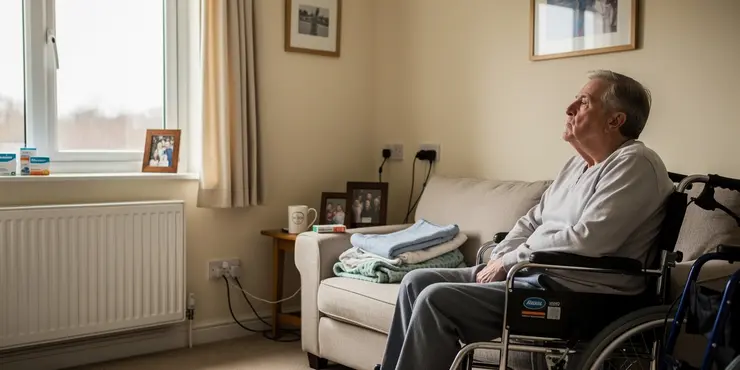
Find Help
More Items From Ergsy search
-
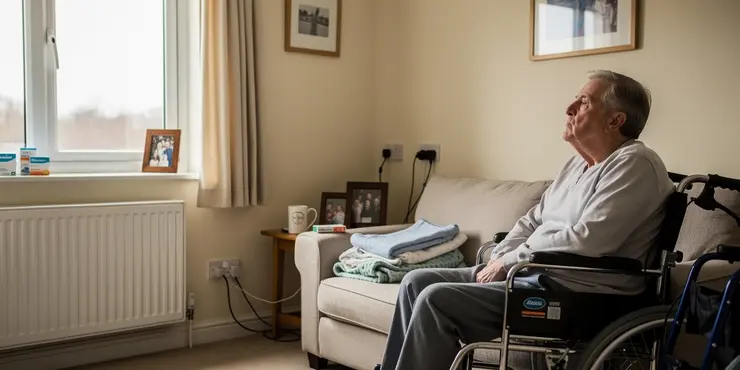
How is breathing affected by motor neurone disease?
Relevance: 100%
-
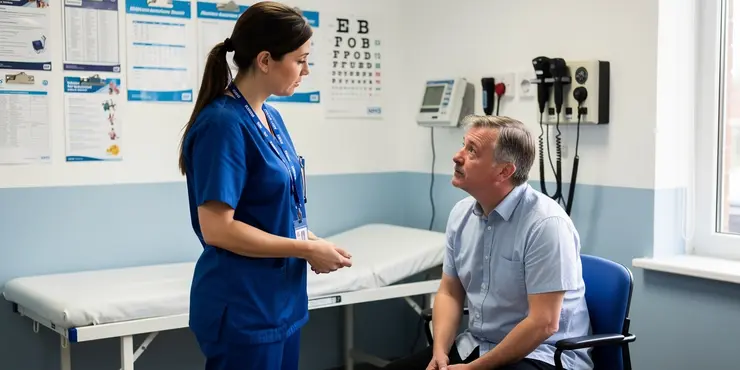
What is motor neurone disease?
Relevance: 88%
-
Is motor neurone disease hereditary?
Relevance: 84%
-
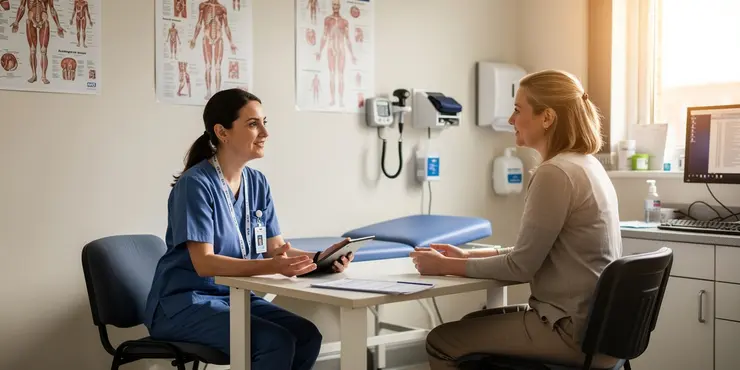
What causes motor neurone disease?
Relevance: 82%
-
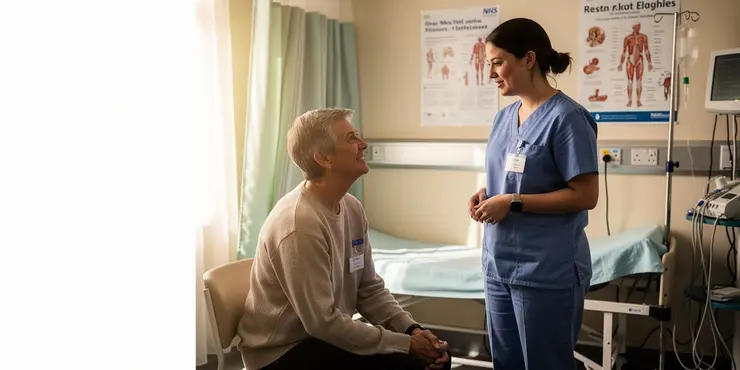
What are the primary symptoms of motor neurone disease?
Relevance: 81%
-
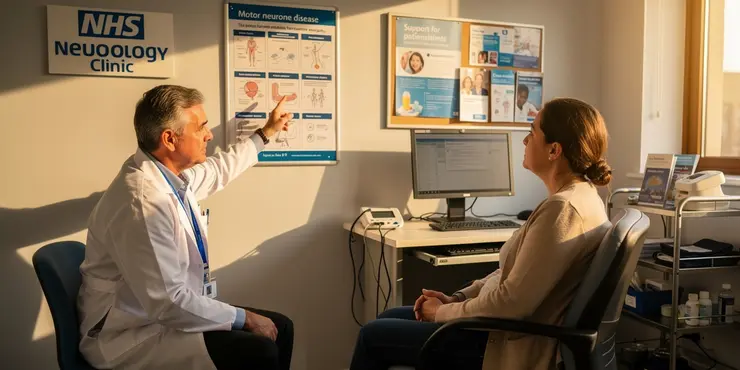
Is there a cure for motor neurone disease?
Relevance: 81%
-
Are there different types of motor neurone disease?
Relevance: 81%
-
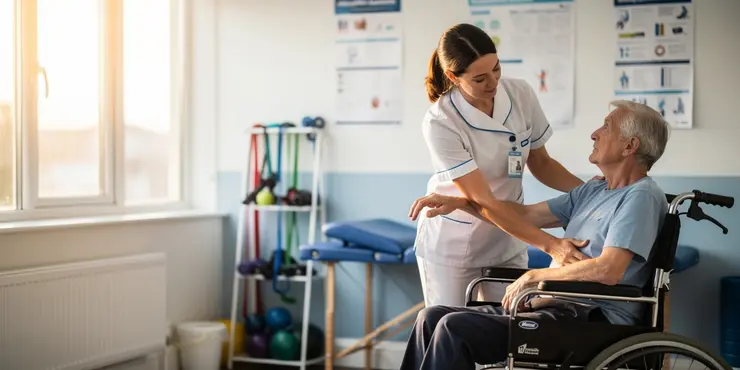
What treatments are available for motor neurone disease?
Relevance: 76%
-
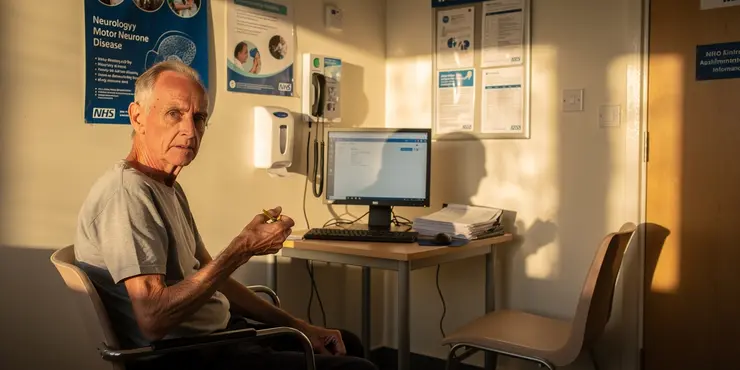
How does motor neurone disease affect the body?
Relevance: 74%
-
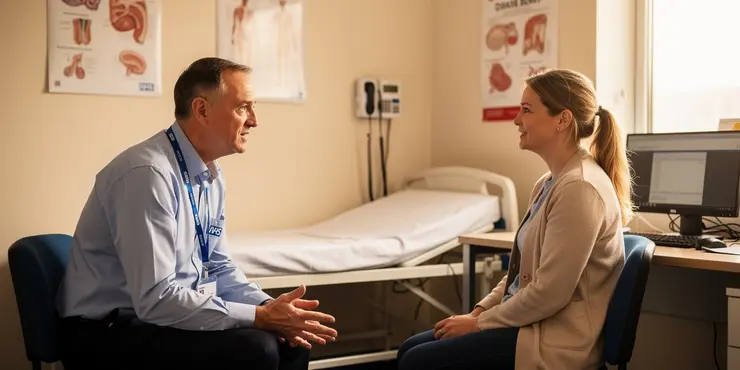
How is motor neurone disease diagnosed?
Relevance: 74%
-
How does motor neurone disease affect speech?
Relevance: 71%
-
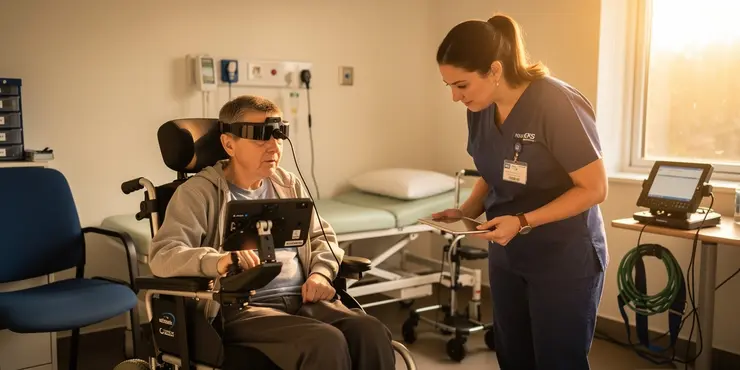
What assistive devices can help people with motor neurone disease?
Relevance: 70%
-

Motor neurone disease Julie's story | NHS
Relevance: 69%
-
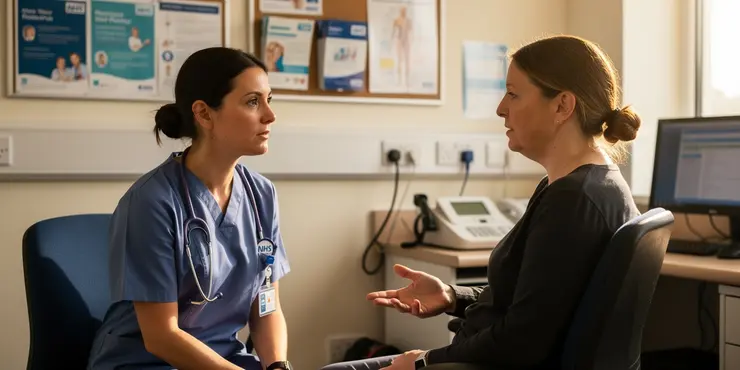
What role do genetics play in motor neurone disease?
Relevance: 69%
-
Can lifestyle changes impact motor neurone disease progression?
Relevance: 67%
-
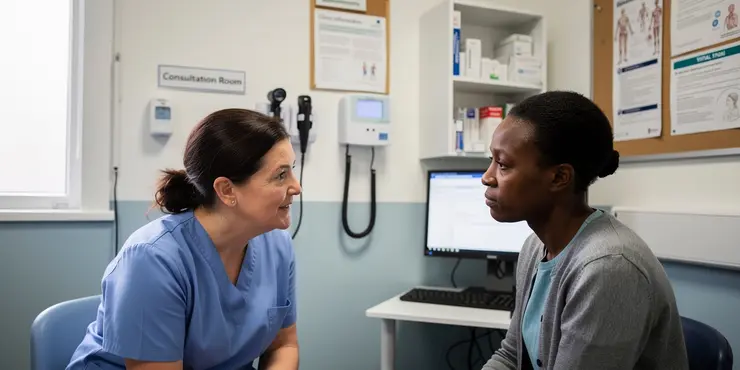
What is the life expectancy after a motor neurone disease diagnosis?
Relevance: 65%
-
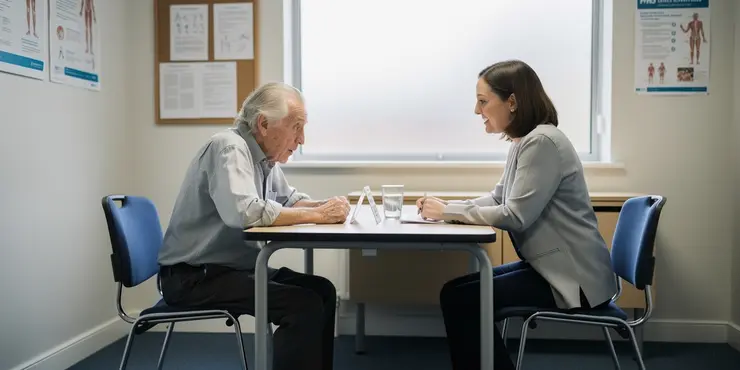
How does motor neurone disease impact swallowing?
Relevance: 64%
-
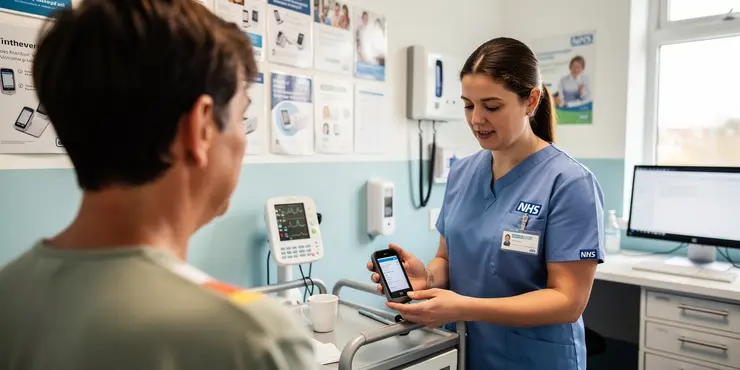
Voice banking service helps people live with motor neurone disease
Relevance: 62%
-

How can caregivers support someone with motor neurone disease?
Relevance: 59%
-
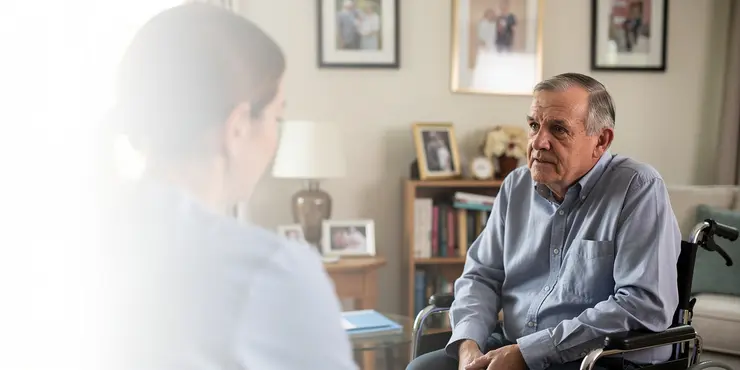
Are there support groups for individuals with motor neurone disease?
Relevance: 56%
-
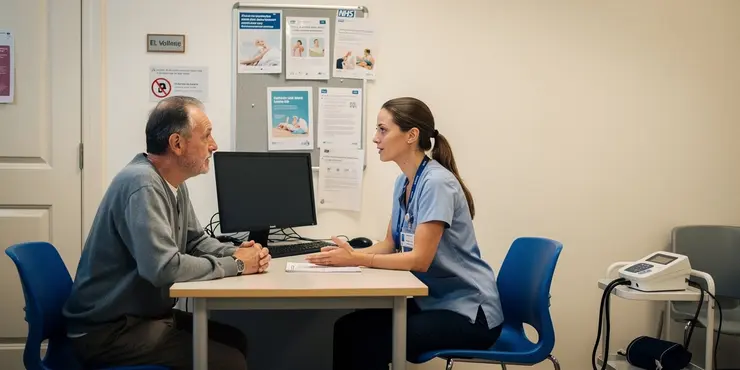
Who is at risk for motor neurone disease?
Relevance: 53%
-
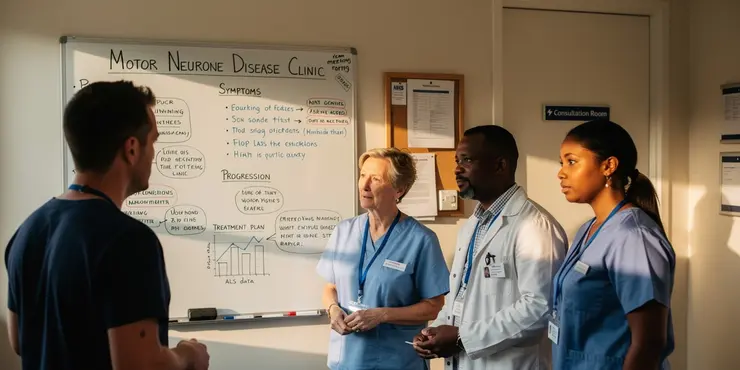
What research is being done on motor neurone disease?
Relevance: 52%
-

What is MND?
Relevance: 36%
-
How does Huntington's disease affect movement?
Relevance: 33%
-

Clearing Your Chest with Breathing Exercises
Relevance: 32%
-
What is Parkinson's disease?
Relevance: 30%
-
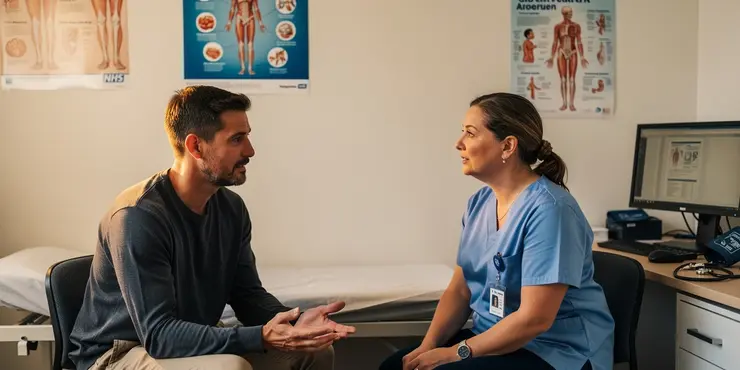
What causes Huntington's disease?
Relevance: 29%
-
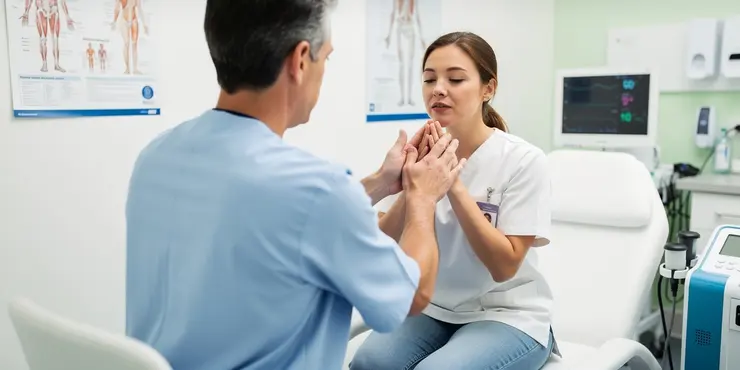
How to retrain your breathing | Part 2 | Asthma, long covid or breathlessness
Relevance: 26%
-
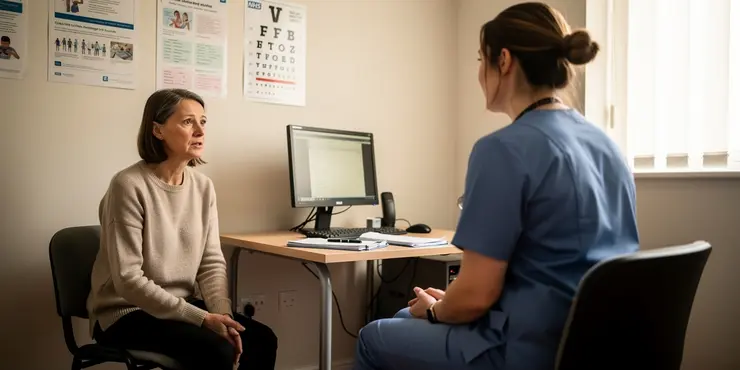
What are the symptoms of Huntington's disease?
Relevance: 26%
-

Is Huntington's disease fatal?
Relevance: 26%
-
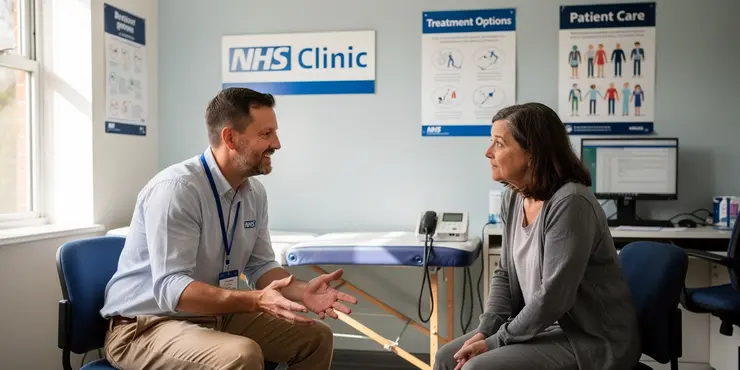
What research is being done on Huntington's disease?
Relevance: 26%
-
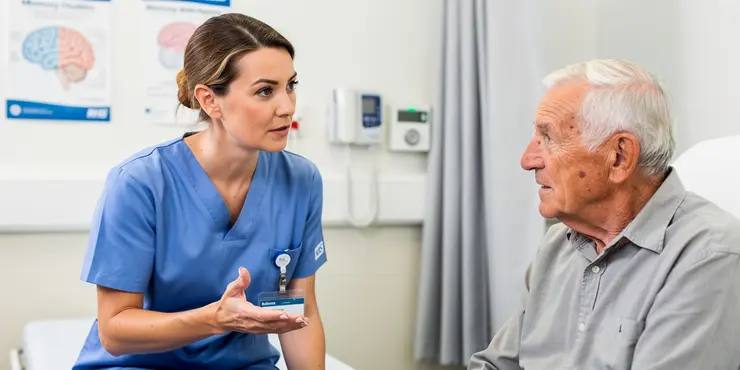
What causes Alzheimer's disease?
Relevance: 24%
-
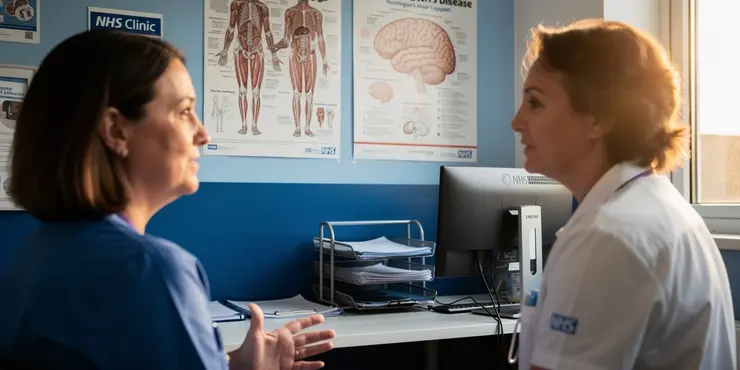
What is Huntington's disease?
Relevance: 22%
-

Can Huntington's disease be prevented?
Relevance: 22%
-
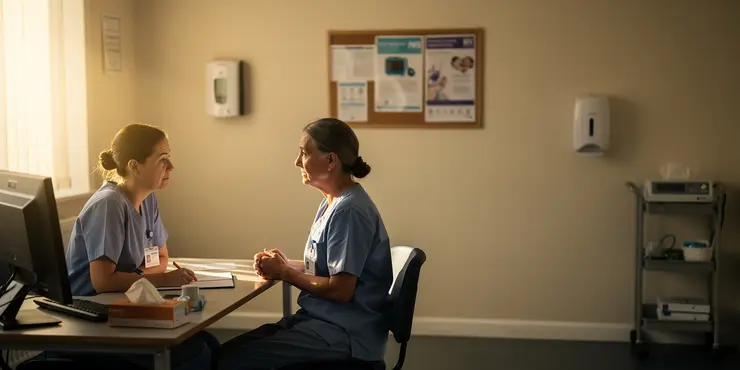
Can Huntington's disease be cured?
Relevance: 21%
-
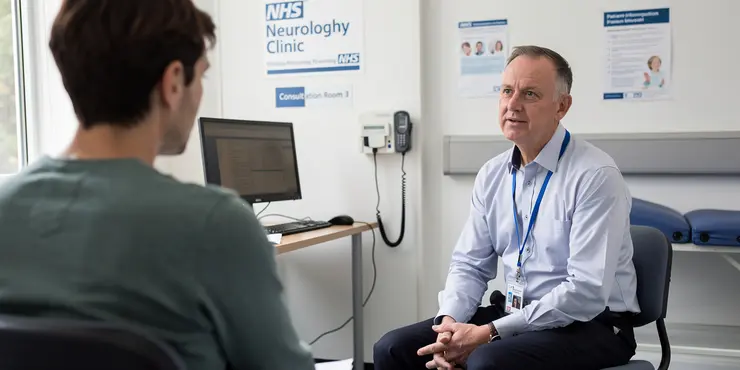
What kinds of specialists are involved in treating Huntington's disease?
Relevance: 21%
-

How is Huntington's disease diagnosed?
Relevance: 21%
-
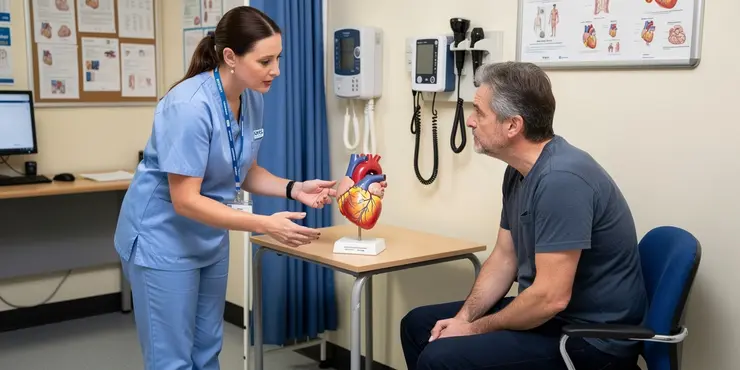
What is heart valve disease?
Relevance: 20%
-
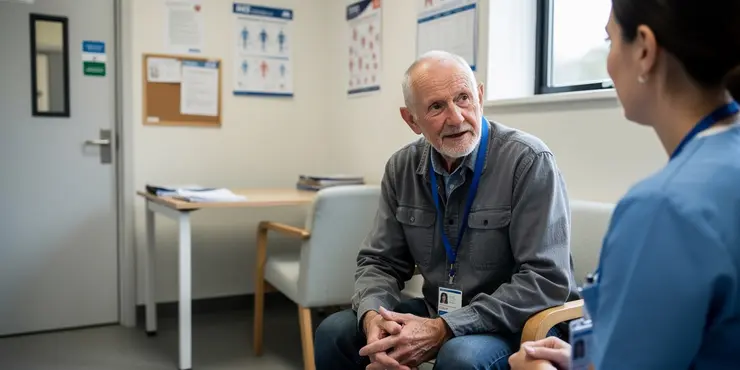
Parkinson’s Disease and NHS RightCare: Long Term Condition Scenario
Relevance: 20%
-
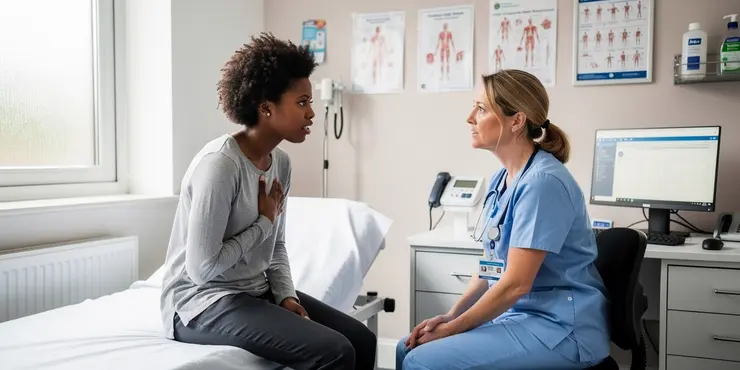
What are the symptoms of sickle cell disease?
Relevance: 20%
Understanding Motor Neurone Disease
Motor Neurone Disease (MND) is a progressive neurological condition that affects the motor neurones, which are the nerve cells responsible for controlling voluntary muscles. As these neurones deteriorate, it leads to muscle weakness and wasting. In the UK, MND is a relatively rare condition but can have profound effects on those it impacts, ultimately affecting their ability to breathe independently.
The Impact of MND on Breathing
Breathing difficulties are a common complication of MND as the disease progresses. The respiratory muscles, including the diaphragm and those between the ribs, become weakened as the disease damages the motor neurones. This weakening makes it increasingly difficult for individuals to take deep breaths or cough effectively, which are crucial functions for maintaining adequate oxygen levels and clearing the airways of secretions.
Symptoms of Respiratory Decline
As the breathing muscles weaken, individuals with MND may experience a range of symptoms. These can include shortness of breath, particularly during physical activity, as well as at rest as the disease advances. Other symptoms may include frequent waking during the night due to breathing difficulties, morning headaches, and an overall feeling of fatigue. These symptoms are often indicative of inadequate ventilation during sleep, which can lead to further health complications.
Medical Support and Interventions
In the UK, people with MND may receive support from a multidisciplinary team including neurologists, respiratory specialists, and physiotherapists. Non-invasive ventilation (NIV) is a common intervention used to assist breathing in those with MND. NIV involves wearing a mask connected to a machine that helps with breathing during sleep, alleviating symptoms and improving quality of life.
Palliative Care and Symptom Management
As MND progresses, palliative care plays a crucial role in managing symptoms and ensuring comfort. This care may include the provision of oxygen therapy, medications to reduce saliva and mucus, and techniques to aid in clearing secretions. The goal of palliative care is to enhance the quality of life for both individuals with MND and their families by addressing the complex and multifaceted symptoms associated with respiratory decline.
Conclusion
Motor Neurone Disease significantly impacts respiratory function as it progresses, leading to serious challenges with breathing. Understanding these effects is crucial for timely intervention and management. With appropriate medical support and interventions, it is possible to maintain respiratory function and improve quality of life for those affected by MND in the UK.
What is Motor Neurone Disease?
Motor Neurone Disease (MND) is an illness. It affects the nerve cells that help muscles move. These cells are called motor neurones. When motor neurones get weak, muscles also get weak. This can make it hard to breathe without help. MND is not common in the UK, but it can make life very hard for those who have it.
How MND Affects Breathing
Many people with MND have trouble breathing. This is because the breathing muscles get weak. These muscles include the diaphragm and the ones between the ribs. If these muscles are weak, it is hard to take big breaths or cough. Breathing deeply and coughing help keep your lungs healthy.
Signs of Breathing Problems
When breathing muscles are weak, you might feel out of breath easily. You might also have trouble breathing when you are resting. Some people wake up often at night or have headaches in the morning. You might feel very tired. These are signs that you are not getting enough air, especially at night.
Getting Medical Help
In the UK, there are doctors and therapists who can help people with MND. They work together to support you. One common help is a breathing machine. You wear a mask attached to this machine when you sleep. It helps you breathe better and can make life easier.
Care to Help Feel Better
As MND gets worse, special care can help you feel more comfortable. This is called palliative care. It might include giving oxygen, medicines to reduce saliva, and ways to clear mucus. This care helps you and your family feel better even with the hard symptoms of breathing problems.
Conclusion
MND can make breathing very hard. It is important to know how it affects breathing so you can get help early. With the right support and care, people with MND can breathe easier and live better.
Frequently Asked Questions
What is motor neurone disease?
Motor neurone disease (MND) is a progressive neurological condition that affects the nerves (motor neurones) in the brain and spinal cord, leading to weakness and wasting of muscles.
How does motor neurone disease affect breathing?
MND can affect breathing by weakening the respiratory muscles that are necessary for effective inhalation and exhalation, leading to difficulties in breathing.
Which muscles are involved in breathing that may be affected by MND?
The diaphragm and intercostal muscles are primary muscles involved in breathing that may weaken due to MND.
What are the symptoms of breathing difficulties in MND?
Symptoms may include shortness of breath, fatigue, difficulty sleeping, morning headaches, and frequent sighing.
Can MND lead to respiratory failure?
Yes, as MND progresses, weakened respiratory muscles can lead to respiratory failure, which is a leading cause of death in MND patients.
How is respiratory function monitored in individuals with MND?
Respiratory function is typically monitored using tests such as spirometry, blood gas analysis, and overnight oximetry.
What is non-invasive ventilation (NIV) and how does it help?
NIV is a treatment that provides assisted ventilation through a mask, helping to support breathing in individuals with weakened respiratory muscles.
When is ventilator support typically recommended for MND patients?
Ventilator support is usually recommended when breathing muscles are significantly weakened and the patient experiences respiratory failure symptoms.
Are there medications that can help with breathing difficulties in MND?
While medications can't stop the progression of breathing difficulties, drugs such as bronchodilators or cough suppressants may provide symptom relief.
How can physical therapy help with breathing in MND?
Physical therapy can help maintain muscle strength and mobility, including exercises to strengthen the respiratory muscles and improve overall respiratory function.
What role does a multidisciplinary team play in managing breathing issues in MND?
A multidisciplinary team, including neurologists, pulmonologists, and respiratory therapists, works together to evaluate and manage the respiratory health of MND patients.
Is coughing affected by motor neurone disease?
Yes, weakened respiratory muscles can impair the ability to cough effectively, increasing the risk of respiratory infections.
What lifestyle adjustments can help MND patients with breathing difficulties?
Adjustments can include optimizing sleeping positions, using breathing exercises, maintaining a healthy diet, and avoiding respiratory infections.
Can supplemental oxygen help MND patients with their breathing?
Supplemental oxygen isn't typically used unless there is a specific indication for it, as it doesn't address the underlying muscle weakness.
Are there specific sleeping positions that can help MND patients breathe better?
Patients might feel more comfortable sleeping in a semi-reclined position to reduce pressure on their diaphragm and improve breathing.
How does MND progress in relation to breathing difficulties?
Breathing difficulties can progress as the disease affects more motor neurons over time, gradually weakening the respiratory muscles further.
Why are morning headaches a sign of respiratory problems in MND?
Morning headaches can result from elevated carbon dioxide levels due to inadequate ventilation during sleep.
What are the initial signs of breathing problems in MND?
Initial signs might include shortness of breath on exertion, difficulty lying flat, or unexplained fatigue.
How important is early detection of breathing issues in MND?
Early detection is critical to managing symptoms effectively and improving quality of life through timely interventions like ventilation support.
What preventive measures can be taken to protect against respiratory infections in MND?
Preventive measures include vaccination, hand hygiene, avoiding sick contacts, and possibly prophylactic antibiotics as guided by a healthcare provider.
What is motor neurone disease?
Motor neurone disease (MND) is an illness. It affects the nerves in the body that help muscles move. This makes it hard for people to walk, talk, or breathe.
Tools like pictures or videos can help understand MND better. Talking with a doctor or nurse can also be helpful.
Motor neurone disease (MND) is an illness that gets worse over time. It affects special nerves called motor neurones in the brain and spinal cord. This makes muscles weak and smaller.
If you want help to understand this, try using pictures or videos. Reading with someone else can also help.
How does motor neurone disease affect breathing?
Motor neurone disease is an illness that can make your muscles weak. This can make it harder to breathe.
Here is how it happens:
- The muscles that help you breathe can get weaker.
- You may find it hard to take deep breaths.
- It might be tough to cough and clear your throat.
If you have trouble breathing, tell a doctor or nurse. They can help you find ways to make breathing easier.
Some tools can help you, like:
- Breathing machines that help you breathe better.
- Talking to a therapist who can show you ways to relax and breathe easier.
MND can make it hard to breathe because it makes the muscles used for breathing weak. This can make it tough to breathe in and out.
What muscles help us breathe and might be affected by MND?
MND can make breathing hard. Let's learn about the muscles that help us breathe:
- Diaphragm: This muscle is under the lungs and helps move air in and out.
- Chest muscles: These help the chest move when you breathe.
- Neck muscles: These help lift the chest when you take a big breath.
Tools like picture cards can help learn about this. Ask a grown-up or teacher if you have questions.
The diaphragm and the intercostal muscles help you breathe. These muscles can get weak if someone has a disease called MND.
What are the signs of breathing trouble in MND?
MND can make it hard to breathe. Here are signs to look for:
- Trouble taking deep breaths
- Feeling out of breath, even when resting
- Waking up at night gasping for air
- Headaches in the morning
- Feeling very tired during the day
- Weak cough
If you see these signs, talk to a doctor. They can help. A breathing machine or special exercises might make it easier to breathe.
You might feel out of breath. You could get tired easily. It might be hard to sleep. You could have headaches in the morning. You might also sigh a lot.
Can MND cause breathing problems?
Yes, as MND gets worse, the muscles that help you breathe get weak. This can make it hard to breathe and can be very serious for people with MND.
How do doctors check breathing in people with MND?
Doctors check how well you breathe with special tests. They use tools like:
1. A spirometer – you blow into a machine to see how strong your breathing is.
2. A blood test – this checks how much oxygen is in your blood.
3. A night test – you wear a small device overnight to see how you breathe while you sleep.
If reading is hard, ask someone to help or use text-to-speech tools.
What is non-invasive ventilation (NIV) and how does it help?
Non-invasive ventilation, or NIV, is a way to help you breathe without putting anything inside your body. It uses a machine and a mask. The mask goes over your nose and mouth. The machine pushes air into your lungs. This makes it easier to breathe.
NIV can help if you have trouble breathing. It can help when you feel tired or have a sickness like asthma or lung problems.
If you find reading hard, you can use tools to help. You could use pictures or videos to see how NIV works. You can also ask someone to read the words with you.
NIV is a way to help people breathe using a mask. It supports people who have weak breathing muscles.
When do doctors say an MND patient needs help to breathe?
A ventilator helps you breathe when your breathing muscles get very weak. It is used when you have trouble breathing on your own.
Can medicine help with breathing problems in MND?
MND can make it hard to breathe. There is medicine that can help. Doctors can give you medicine to make breathing easier. Talk to your doctor about what is best for you.
You can ask your doctor about machines that help with breathing. They can show you how to use them.
If you need help understanding, ask someone to explain it to you. You can also use pictures or videos to understand better.
Medicines can't make breathing problems go away, but they can help you feel better. Some medicines help open your airways, and others can help stop a cough.
How can exercises help with breathing if you have MND?
People with MND sometimes have trouble breathing. Exercises can help make breathing easier.
Here are some ways exercises can help:
- Make muscles strong: Exercises can make breathing muscles stronger.
- Help clear lungs: Special exercises can help get the air in and out of the lungs better.
- Feel better: Breathing well can help you feel better and relax.
Ask a doctor or therapist for help with these exercises. You can work with them to do the right exercises for you.
Physiotherapy can help keep your muscles strong and help you move better. It includes exercises to make the muscles that help you breathe stronger. This helps you breathe better overall.
How does a team of different experts help with breathing problems in MND?
A group of different experts work together to help with breathing problems in MND. MND means motor neurone disease. This group is called a team. Each person in the team is good at a special job. They talk to each other to give the best help.
Some people in the team might be doctors or nurses. Others might be therapists. They check how you are breathing and think of ways to help. They might give you tools to make breathing easier. They also show you how to use these tools.
You can use pictures or videos to understand better. Family and friends can help too. They can come to meetings with the team. The team is there to help you feel better and breathe better.
A group of different doctors and helpers look after people with MND. MND is a sickness that can make it hard to breathe.
The team has special doctors for the brain, lungs, and breathing. They work together to help people with MND breathe better.
Using pictures and simple words can help you understand better.
It might also help to have a friend read this with you.
Does motor neurone disease make you cough more?
Yes, weak breathing muscles can make it hard to cough well. This can make it easier to get a lung infection.
How can people with MND breathe easier?
Some things can help people with MND breathe better. Here are some ideas:
- Exercise: Light exercise, like walking or stretching, can help. Always ask a doctor what is safe.
- Good Posture: Sit up straight to help your lungs work better.
- Fresh Air: Open windows to get fresh air in your home.
- Rest: Take breaks and rest often.
- Use Machines: Special machines can help you breathe. Ask your doctor about them.
It is important to talk to your doctor or a nurse. They can give you more ideas and help keep you safe.
You can make changes to help you sleep better. Try different sleeping positions. Do breathing exercises. Eat healthy food. Stay away from colds and flu.
Can extra oxygen help people with MND breathe better?
People with MND sometimes have trouble breathing. Extra oxygen can help them breathe.
Here are some things that might help:
- Use a special machine that gives you more oxygen.
- Talk to your doctor about how to use it.
- Get advice from a nurse or healthcare team.
Extra oxygen is not usually used unless there is a special reason. This is because it does not help weak muscles get stronger.
What sleeping positions can help people with MND breathe more easily?
People might sleep better if they sit up a little. This helps them breathe easier by taking pressure off their chest.
How does MND affect breathing over time?
Breathing can get harder as the disease gets worse. This happens because the disease makes the muscles we use to breathe weaker over time.
Why do people with MND get headaches in the morning?
Sometimes, people with MND have trouble breathing at night.
This can cause headaches in the morning.
If you wake up with a headache, talk to a doctor.
The doctor can help. They might give you a breathing machine to use during sleep.
Morning headaches can happen because there is too much carbon dioxide in the air. This can happen if there is not enough fresh air while you sleep.
What are the first signs of breathing problems in MND?
MND stands for Motor Neurone Disease.
Here are some early signs of breathing problems:
- Feeling out of breath when you are resting or sleeping.
- Finding it hard to breathe deeply.
- Waking up often during the night.
- Feeling tired during the day, even after sleep.
- Needing extra pillows to sleep upright.
- Weak cough.
If you notice these signs, talk to a doctor. They can help with treatments or tools to make breathing easier.
First signs can be:
- Breathing hard when you move around.
- Finding it hard to lie down flat.
- Feeling very tired for no clear reason.
Using pictures or apps that read text out loud can help understand these signs.
Why is it important to find breathing problems early in MND?
Finding out early is very important. It helps to treat symptoms better and makes life better. Getting help on time, like using a breathing machine, can make a big difference.
How can we stop breathing infections if someone has MND?
What you can do:
- Wash your hands often with soap and water.
- Keep away from people who are sick.
- Use tissues to cover your mouth and nose when you cough or sneeze. Throw tissues away after use.
- Keep your home clean and dust-free.
- Get a flu shot every year.
- Try to keep a healthy lifestyle with good food, rest, and exercise.
These steps can help keep you safe.
Helpful tools:
- Use hand sanitizers if you can't wash your hands.
- Try a reminder app to keep track of cleaning and vaccination schedules.
Stay healthy by doing these things:
- Get your vaccines. They help keep you from getting sick.
- Wash your hands often. Clean hands are important!
- Stay away from people who are sick. This stops germs from spreading.
- Sometimes, doctors might give special medicine to stop you from getting sick. They will tell you if you need it.
Ask an adult if you need help or have questions. They can help you stay safe and healthy!
Useful Links
This website offers general information and is not a substitute for professional advice.
Always seek guidance from qualified professionals.
If you have any medical concerns or need urgent help, contact a healthcare professional or emergency services immediately.
Some of this content was generated with AI assistance. We’ve done our best to keep it accurate, helpful, and human-friendly.
- Ergsy carfully checks the information in the videos we provide here.
- Videos shown by Youtube after a video has completed, have NOT been reviewed by ERGSY.
- To view, click the arrow in centre of video.
- Most of the videos you find here will have subtitles and/or closed captions available.
- You may need to turn these on, and choose your preferred language.
- Go to the video you'd like to watch.
- If closed captions (CC) are available, settings will be visible on the bottom right of the video player.
- To turn on Captions, click settings .
- To turn off Captions, click settings again.
More Items From Ergsy search
-

How is breathing affected by motor neurone disease?
Relevance: 100%
-

What is motor neurone disease?
Relevance: 88%
-
Is motor neurone disease hereditary?
Relevance: 84%
-

What causes motor neurone disease?
Relevance: 82%
-

What are the primary symptoms of motor neurone disease?
Relevance: 81%
-

Is there a cure for motor neurone disease?
Relevance: 81%
-
Are there different types of motor neurone disease?
Relevance: 81%
-

What treatments are available for motor neurone disease?
Relevance: 76%
-

How does motor neurone disease affect the body?
Relevance: 74%
-

How is motor neurone disease diagnosed?
Relevance: 74%
-
How does motor neurone disease affect speech?
Relevance: 71%
-

What assistive devices can help people with motor neurone disease?
Relevance: 70%
-

Motor neurone disease Julie's story | NHS
Relevance: 69%
-

What role do genetics play in motor neurone disease?
Relevance: 69%
-
Can lifestyle changes impact motor neurone disease progression?
Relevance: 67%
-

What is the life expectancy after a motor neurone disease diagnosis?
Relevance: 65%
-

How does motor neurone disease impact swallowing?
Relevance: 64%
-

Voice banking service helps people live with motor neurone disease
Relevance: 62%
-

How can caregivers support someone with motor neurone disease?
Relevance: 59%
-

Are there support groups for individuals with motor neurone disease?
Relevance: 56%
-

Who is at risk for motor neurone disease?
Relevance: 53%
-

What research is being done on motor neurone disease?
Relevance: 52%
-

What is MND?
Relevance: 36%
-
How does Huntington's disease affect movement?
Relevance: 33%
-

Clearing Your Chest with Breathing Exercises
Relevance: 32%
-
What is Parkinson's disease?
Relevance: 30%
-

What causes Huntington's disease?
Relevance: 29%
-

How to retrain your breathing | Part 2 | Asthma, long covid or breathlessness
Relevance: 26%
-

What are the symptoms of Huntington's disease?
Relevance: 26%
-

Is Huntington's disease fatal?
Relevance: 26%
-

What research is being done on Huntington's disease?
Relevance: 26%
-

What causes Alzheimer's disease?
Relevance: 24%
-

What is Huntington's disease?
Relevance: 22%
-

Can Huntington's disease be prevented?
Relevance: 22%
-

Can Huntington's disease be cured?
Relevance: 21%
-

What kinds of specialists are involved in treating Huntington's disease?
Relevance: 21%
-

How is Huntington's disease diagnosed?
Relevance: 21%
-

What is heart valve disease?
Relevance: 20%
-

Parkinson’s Disease and NHS RightCare: Long Term Condition Scenario
Relevance: 20%
-

What are the symptoms of sickle cell disease?
Relevance: 20%


